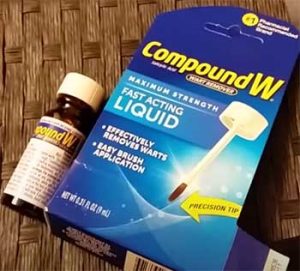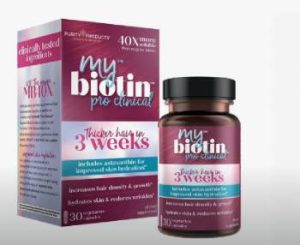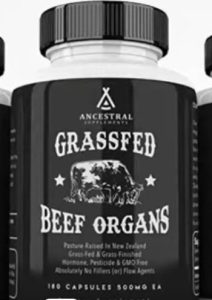Standing in the supplement aisle, I’m overwhelmed by collagen options promising glowing skin and stronger joints.
SkinnyFit and Vital Proteins stand out, but which is worth my money? In this journey, I share my experience testing both, comparing their features, benefits, and drawbacks.
My goal is to help you decide which collagen fits your wellness goals, whether it’s radiant skin, joint relief, or overall health.
With a conversational tone and analytical lens, I’ll break down the hype and science to guide your choice.
Comparison Table: SkinnyFit Vs. Vital Proteins Collagen
| Feature | SkinnyFit Super Youth | Vital Proteins Collagen Peptides |
| Collagen Types | I, II, III, V, X | I, III |
| Source | Bovine, chicken, fish, eggshell | Bovine (grass-fed, pasture-raised) |
| Serving Size | 14g (2 scoops) | 20g (2 scoops) |
| Added Ingredients | Vitamin C, apple cider vinegar | Vitamin C, hyaluronic acid (Advanced formula) |
| Calories per Serving | 50 | 70 |
| Flavors | Unflavored, Peach Mango, Chocolate, etc. | Unflavored, Chocolate, Lemon, etc. |
| Cost per Serving | $1.50–$2.50 | $1.00–$1.80 |
| Certifications | Non-GMO, gluten-free | Paleo, Whole30, NSF (select products) |
| Best For | Multi-benefit, weight support | Skin, joints, affordability |
My Collagen Journey Begins
A couple of years ago, my skin started losing its bounce, and my knees protested after every run.
A friend raved about collagen supplements, claiming they transformed her skin and joints.
Intrigued, I grabbed Vital Proteins Collagen Peptides at Costco, drawn by its reputation and Jennifer Aniston’s endorsement.
Later, I tried SkinnyFit Super Youth, lured by its multi-collagen promise and weight-loss claims.
Both brands delivered results, but they’re not identical. Let’s unpack what makes each unique, starting with the basics of collagen.
Collagen is the body’s most abundant protein, forming the structure of skin, bones, joints, and connective tissues.
It’s like the scaffolding that keeps us youthful. But after age 25, collagen production drops by about 1% yearly, accelerating post-menopause.
This leads to wrinkles, brittle nails, and creaky joints. Supplements aim to replenish this loss, delivering amino acids like glycine, proline, and hydroxyproline to support tissue repair.
SkinnyFit and Vital Proteins both offer hydrolyzed collagen peptides—broken-down collagen for better absorption—but their approaches differ.
SkinnyFit Super Youth: The Multi-Collagen Powerhouse
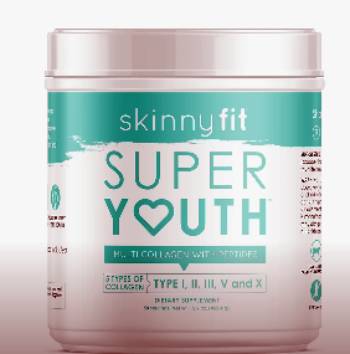
SkinnyFit Super Youth caught my eye with its bold claim: five collagen types (I, II, III, V, X) from four sources (bovine, chicken, fish, eggshell).
Most supplements, including Vital Proteins, focus on types I and III for skin and nails, but SkinnyFit adds type II for joints, type V for organs, and type X for cartilage.
I figured this broader spectrum might offer more benefits, especially since my knees were acting up.
Each serving (14g) provides 12.8g of collagen, plus vitamin C and apple cider vinegar, which SkinnyFit markets for metabolism and weight loss.
I tried the unflavored version, mixing it into my morning coffee. It dissolved well, with no clumps, though I noticed a faint tangy aftertaste, likely from the vinegar.
The flavored options, like Peach Mango, were tastier but contained stevia, which I’m not a fan of.
After a month, my skin felt softer, and my nails grew stronger. My joints? Slightly less cranky, but the change wasn’t dramatic.
Research supports some of SkinnyFit’s claims. A 2021 study showed type II collagen reduces joint pain in osteoarthritis patients, and a 2019 meta-analysis found hydrolyzed collagen improves skin hydration and elasticity.
The apple cider vinegar intrigued me, as small studies suggest it may boost satiety and metabolism, but the dose in SkinnyFit (amount undisclosed) is likely too low for significant weight-loss effects.
At $1.50–$2.50 per serving, it’s pricier than Vital Proteins, which made me question its value.
Pros and Cons of SkinnyFit Super Youth
Pros of SkinnyFit Super Youth
- Multi-collagen blend: Targets skin, joints, organs, and cartilage.
- Added ingredients: Vitamin C supports collagen synthesis; apple cider vinegar may aid digestion.
- Variety of flavors: Unflavored or tasty options like Chocolate or Tropical Punch.
- Non-GMO and gluten-free: Suitable for many dietary needs.
Cons of SkinnyFit Super Youth
- Expensive: Higher cost per serving compared to competitors.
- Lower collagen per serving: 12.8g vs. Vital Proteins’ 20g.
- Limited certifications: Lacks third-party testing like NSF.
- Potential allergens: Contains fish and eggshell, a concern for some.
Also Read: My Thoughts On Thorne Collagen Plus
Vital Proteins Collagen Peptides: The Trusted Staple
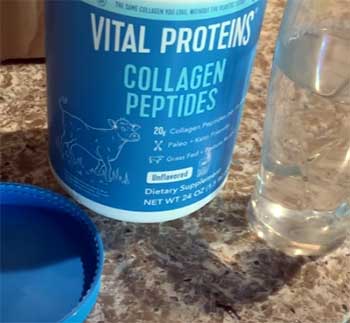
Vital Proteins is the collagen giant, endorsed by celebrities like Jennifer Aniston and sold everywhere from Costco to Amazon.
Its Collagen Peptides focus on types I and III from grass-fed, pasture-raised bovine, delivering 20g of collagen per 20g serving.
The standard unflavored version is simple, with one ingredient: bovine collagen.
The Advanced formula adds 120mg hyaluronic acid and 100% daily value of vitamin C, which I tried for its skin-boosting potential.
I started with the unflavored powder, mixing it into smoothies and oatmeal. It dissolved seamlessly, with no taste or texture issues—a huge win compared to the clumpy gelatin I’d tried years ago.
After six weeks, my skin looked brighter, and my nails stopped peeling. My knee pain also eased slightly, aligning with a 2022 study showing collagen peptides reduce joint discomfort in athletes.
The Advanced formula felt like a step up; my skin seemed more hydrated, possibly due to hyaluronic acid, which a 2021 study linked to wrinkle reduction.
Vital Proteins is more affordable, ranging from $1.00–$1.80 per serving, especially if you buy in bulk at Costco.
It’s also Paleo and Whole30-approved, with some products NSF-certified for quality.
However, it’s not a complete protein, lacking tryptophan, so it shouldn’t replace your post-workout shake.
I also noticed mixed reviews about dissolvability in cold water, though I never had issues.
Pros and Cons of Vital Proteins Collagen Peptides
Pros of Vital Proteins Collagen Peptides
- High collagen content: 20g per serving, more than SkinnyFit.
- Affordable: Better value, especially in bulk.
- Third-party tested: NSF certification on select products ensures purity.
- Versatile: Unflavored mixes into anything; flavored options available.
Cons of Vital Proteins Collagen Peptides
- Limited collagen types: Only I and III, missing joint-specific type II.
- Not vegan: Bovine-derived, unsuitable for plant-based diets.
- Mixed dissolvability: Some report clumping in cold liquids.
- Minimal added ingredients: Standard version lacks extras like hyaluronic acid.
Also Read: My Thoughts On Ancient Nutrition Multi Collagen Protein
The Science Behind the Hype
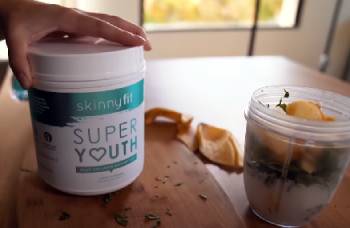
As a skeptic, I dug into the research to see if these supplements live up to their claims. Collagen peptides have solid evidence for skin and joint health.
A 2019 meta-analysis of 19 studies found that 2.5–10g daily improves skin hydration, elasticity, and wrinkle depth after 3 months.
For joints, a 2021 study showed 5g daily reduces knee pain in active adults, and a 2020 trial reported increased bone density in postmenopausal women taking 5g daily.
SkinnyFit’s multi-collagen approach sounds impressive, but there’s a catch. Some experts argue the body breaks down all collagen into the same amino acids, so specific types may not matter.
A 2023 review found no significant advantage of multi-collagen blends over single-type peptides for skin or joints.
Vital Proteins’ focus on types I and III is sufficient for most benefits, as these are the most abundant in skin and connective tissues.
The added ingredients tell a mixed story. Vitamin C, in both brands, is a proven collagen synthesis booster.
SkinnyFit’s apple cider vinegar may support digestion, but its weight-loss benefits are unproven in supplement doses.
Vital Proteins’ hyaluronic acid (in the Advanced formula) has stronger evidence, with studies showing 120mg daily improves skin moisture and reduces wrinkles.
Neither brand is a magic bullet—lifestyle factors like sun protection, sleep, and a protein-rich diet are crucial for collagen production.
My Real-World Experience
I tested both brands for three months each, tracking changes in my skin, nails, joints, and overall wellness.
With Vital Proteins, I noticed brighter skin and stronger nails by week six. My joints felt better during runs, though the effect was subtle.
The Advanced formula with hyaluronic acid gave my skin an extra glow, but the standard version was nearly as effective and cheaper.
At $27 for 20 ounces at Costco, it’s a budget-friendly staple I still use.
SkinnyFit was a different vibe. The multi-collagen blend made me feel like I was covering all bases—skin, joints, even gut health.
My skin felt soft, and my nails grew faster, but the joint relief wasn’t noticeably better than Vital Proteins.
The apple cider vinegar gave me a placebo boost for weight loss, but my scale didn’t budge. At $60 for 30 servings, it felt like a splurge, especially with less collagen per scoop.
Taste-wise, Vital Proteins’ unflavored powder was truly neutral, blending into anything.
SkinnyFit’s unflavored version had a slight tang, and the flavored options (like Chocolate) were tasty but too sweet for daily use.
Both dissolved well in hot liquids, but SkinnyFit mixed slightly better in cold drinks, which was a small win.
Weighing the Pros and Cons
SkinnyFit’s multi-collagen blend is its biggest selling point, offering a broader spectrum than Vital Proteins.
If you’re targeting joint health or want a product with digestion-friendly ingredients, it’s appealing. But the higher price and lower collagen content per serving make it less cost-effective.
The lack of NSF certification also raised my eyebrows—third-party testing matters for supplement purity.
Vital Proteins wins on value and reliability. Its 20g collagen dose, grass-fed sourcing, and NSF certification (on some products) give it an edge.
The Advanced formula’s hyaluronic acid is a bonus for skin health, but the standard version is sufficient for most people.
Its narrower focus on types I and III isn’t a dealbreaker, given the science on collagen absorption.
Making Your Choice
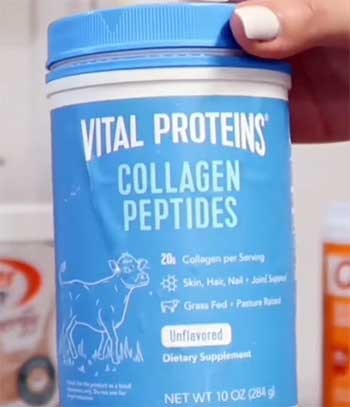
Your decision hinges on priorities. If budget and simplicity matter, Vital Proteins is the clear winner.
Its high collagen content, affordability, and proven results make it a no-brainer for skin and joint support.
Buy the 20-ounce tub at Costco for the best deal, and stick to 10–20g daily for 2–3 months to see results.
SkinnyFit suits those willing to pay more for a multi-collagen blend and extra ingredients. It’s a good pick if you want a premium product with potential gut or weight-loss benefits, but don’t expect miracles.
Check for allergens (fish, eggshell) and start with the unflavored version to avoid sweeteners.
Consistency is key with either brand. Collagen supplements take weeks to show effects, so commit to daily use.
Pair them with a diet rich in vitamin C (like citrus or bell peppers) and zinc (nuts, seafood) to boost collagen synthesis.
Avoid smoking and excessive sun exposure to protect your body’s natural collagen.
Addressing the Hype
Collagen supplements are trendy, but they’re not a cure-all. Celebrities like Jennifer Aniston hype Vital Proteins, but results vary.
Studies show modest benefits for skin and joints, but hair and nail improvements are less consistent.
A 2017 study found 2.5g daily reduced nail brittleness, but hair growth claims are mostly anecdotal.
Neither brand will replace a balanced diet or skincare routine, but they’re a solid addition if you’re noticing aging signs or joint discomfort.
Also Read: My Thoughts On TruRanch Collagen Rolls
Frequently Asked Questions (FAQs)
Vital Proteins is often considered the most effective due to its high collagen content (20g per serving), third-party testing, and research-backed benefits for skin and joints. SkinnyFit is a strong contender for multi-collagen needs but is pricier.
Yes, Jennifer Aniston has endorsed Vital Proteins since 2016 and became its Chief Creative Officer in 2020, reportedly using the peptides for skin and joint health.
It lacks tryptophan, so it’s not a complete protein. Some report clumping in cold liquids, and it only includes types I and III, missing joint-specific type II. It’s also not vegan-friendly.
Vital Proteins isn’t designed for weight loss. It may promote satiety due to its protein content, but there’s no direct evidence it aids weight loss. A healthy diet and exercise are more effective.
Final Thoughts
After months of testing, I’ve shared my insights on SkinnyFit and Vital Proteins to help you navigate the collagen craze.
Vital Proteins is my go-to for its affordability, high collagen dose, and reliable results, but SkinnyFit’s multi-collagen blend is tempting for broader benefits.
You deserve a supplement that fits your budget and goals, whether it’s glowing skin or stronger joints.
Pick one, stay consistent, and pair it with a healthy lifestyle. What’s your next step? Grab a scoop and start your journey—you’ve got this!

